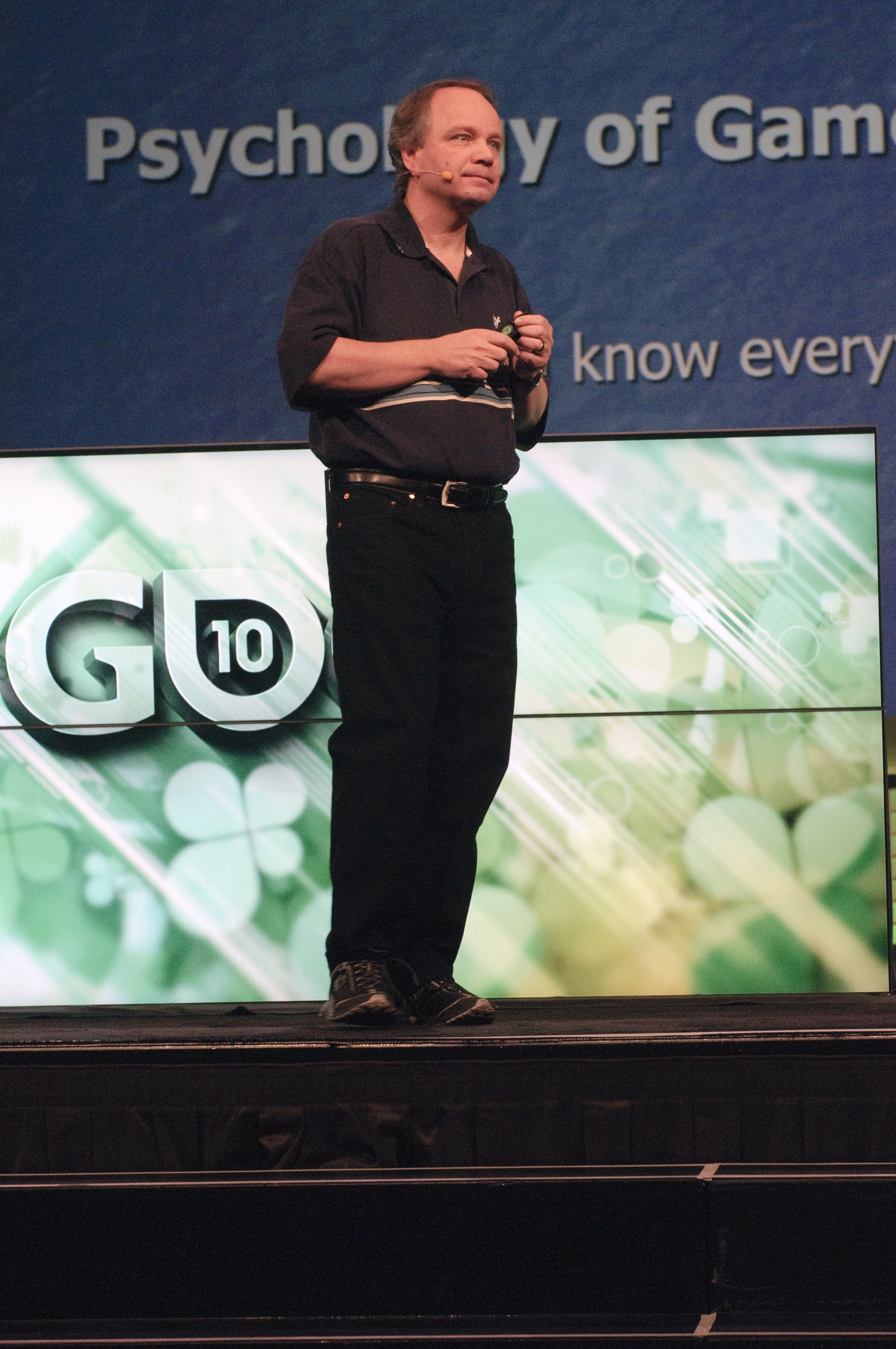GDC 2010, Day 3: Diversity Or Fragmentation?
Sid Meier’s Keynote
While Side Meier’s Keynote talk, “Psychology of Game Design (Everything You Know Is Wrong)” didn’t close the conference, it’s probably a good wrap for our GDC coverage. Sid Meier has been involved in almost every evolutionary step in game design, from arcades to PCs to consoles. And now it looks like Firaxis will even be trying its hand at social network games with the upcoming Civilization Network.
Meier began his talk by casually mentioning that 2010 was “the year of Civilization.” This year will mark the release of both Civilization V and Civilization Network (aka “Civ for Facebook). Noting that gameplay is a psychological experience, Meier pointed out that a game really is all in your head. In fact, any gamer needs to be an egomaniac (think: “god game” and you get the idea), paranoid (the AI and the game designer are out to get me,” and delusional (“I can rule the world).
Games also create what Meier called the Winner Paradox--you’ll win in PC games much more often than you win in real life. He went on to discuss the “Unholy Alliance,” which he described as an unstated agreement between players and game designers. The designer’s job is to make the player feel like he’s good at something, create a suspension of disbelief and create moral clarity, so that beating an opponent doesn’t make you feel like a baby killer.
Perhaps the funniest anecdote he shared about how much psychology affects gameplay was his discussion of combat odds in Civilization Revolution. When a player faces an opponent, and has 3:1 odds, Meier noted. That means the player should lose one out of four times. But if players lost at 3:1, they were mystified: “I have 3:1 odds! I shouldn’t lose!”
So the game had to cheat a bit behind the scenes, to make 3:1 stronger than it seemed. On top of this, while players might begrudgingly allow that losing a battle where they have 2:1 odds is okay sometimes, they should never lose when they have 20:10 odds. After all, at 20:10, they have ten more unit strength than the opponent.
After some advice for budding game designers, he closed with the observation that a game is an epic journey for the player, and should be full of interesting decisions, allow learning and progression and ultimately have both that “just one more turn” feel as well as replayability.
So will Civilization Network attract millions of new users to strategy games, or will it be drowned out by the “software Skinner boxes” built by Zynga and similar, new companies? It’s uncertain, of course. The game could attract millions of users, and still be considered a failure by the standards set by Farmville.
Get Tom's Hardware's best news and in-depth reviews, straight to your inbox.
What’s sure is that interactive entertainment is still continually evolving. It will be fascinating to see what controversies pop up at the 2020 GDC. For now, though, go out and play a game of your own.
-
stridervm Civilization Network could work with me, if it works like Tetris Online, the one with real multiplayer. =)Reply -
dco ReplyDirectX 11 will be a big benefit for users, even if they don’t have DX11 capable hardware.
But if you don't have dx11 hardware how can you make use of it?? -
requiemsallure Reply9490805 said:DirectX 11 will be a big benefit for users, even if they don’t have DX11 capable hardware.
But if you don't have dx11 hardware how can you make use of it??
because it will add useless data to their HDD :P
in all honesty that's a good question. -
Kelavarus Basically Sid Meier says people are idiots, and don't understand ratios.Reply
Haha. Nice. -
I think it is possible to use the DX 11 API but still make your code backward compatible with older cards; just means older cards won't use some of the features you programed in.Reply
I am a bit surprised though that one could code using DX 11 API and still be backward compatible, considering the tessellation requirement. Either Microsoft did a very good job with the API, the game developers need to do a lot of work to make it backward compatible, or I am wrong and it cannot be backwards compatible. -
Shin-san dcoBut if you don't have dx11 hardware how can you make use of it??DirectX 11 has enhanced multithreading support, meaning it depends more on your CPU.Reply -
kokin Some DX11 features were already on GPUs prior to the 5000series/GTX400 (notably ATI cards), like tessalation. They were not utilized, but the features were developed and implemented years ago.Reply
Anyone playing the new Borderlands DLC? Those assassin chicks are kicking my ass. -
neiroatopelcc aethmPlease no more Farmville... I get 20 requests a day as it is!just block the app! click the farmville name (instead of rejecting or accepting) - click the name again - in the left upper corner click 'block this application'Reply
